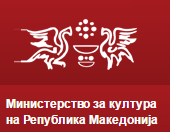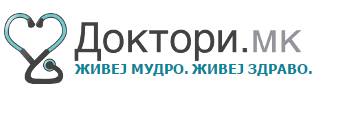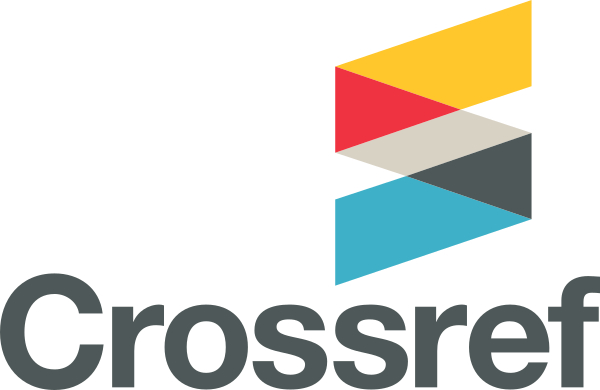JSER Policies
JSER Online
JSER Data
Frequency: quarterly
ISSN: 1409-6099 (Print)
ISSN: 1857-663X (Online)
Authors Info
- Read: 31988
|
|
|
|
|
ПОСТДИПЛОМСКИТЕ СТУДИИ НА ИНСТИТУТОТ ЗА
Горан АЈДИНСКИ Владимир ТРАЈКОВСКИ
Институт за дефектологија |
|
POSTGRADUATE STUDIES AT THE INSTITUTE OF SPECIAL EDUCATION AND REHABILITATION
Goran AJDINSKI Vladimir TRAJKOVSKI
Institute of Special Education and Rehabilitation |
|
|
|
|
|
Вовед |
|
Introduction |
|
Институтот за дефектологија годинава одбележува 15 години постоење како единствена високошколска институција во Република Македонија која изведува универзитетски додипломски и постдипломски студии. |
|
The Institute of Special Education and Rehabilitation has marked 15 years of its existence as the only higher educational institution in the Republic of Macedonia which perform university undergraduate and postgraduate studies. |
|
услови за организирање последипломски студии за научно истражување и стекнување научно звање магистар на науки и доктор на науки од подрачјето на дефектолошката наука. На овој начин се прекина со досегашната практика дефектолозите од Република Македонија да се запишуваат на последипломски студии во Белград, во Софија или во Благоевград. Секако, за ова придонесоа и досегашните искуства кои покажаа дека непосредното пренесување на модели на образование од други социјални, културни и економски средини не е можно и дека решението треба да се бара на самиот Институт за дефектологија. Отворањето на постдипломски студии беше потенцирано од самите студенти кои завршуваа студии по дефектологија и во голем број изразија желба за понатамошно стручно усовршување. |
|
|
|
|
|
|
|
Цел на последипломските студии |
|
The aim of the Postgraduate studies |
|
Цел на последипломските студии е создавање кадар подготвен да ја иницира, унапредува и да ги следи современите тенденции на дефектолошката теорија и практика. |
|
The aim of the postgraduate studies is to create personnel prepared to initiate, enhance and follow up the contemporary tendencies of special education and rehabilitation practice. |
|
Тие се насочени кон едукација на кадри за научно истражувачка работа на:
|
|
They are directed to education of professionals for scientific and research work:
|
|
|
|
|
|
Траење на студиите и кредити |
|
The duration of studies and credits: |
|
Наставата, испитите и другите активности на последипломските студии по дефектологија се одвиваат во три семестри, додека четвртиот е наменет за изработка на магистерскиот труд. Кредитите се распределени рамномерно по семестри. За да пристапи кон изработка на магистерскиот труд, кандидатот треба претходно да освои 90 кредити. |
|
The studies, examinations and other activities of the postgraduate studies in special education and rehabilitation happen in three semesters, while the fourth is meant for the master thesis, with equal number of credits for each semester. In order to start the master thesis, the postgraduate has to achieve 90 credits. |
|
|
|
|
|
Изработка на магистерски труд |
|
Master Thesis |
|
Ментор на кандидатот за изработка на магистерскиот труд може да биде еден од наставниците кои ја изведуваат наставата. Кандидатот избира тема во договор со менторот. Магистерскиот труд се брани според критериуми утврдени на Филозофскиот факултет, со претходно усвојување на темата на трудот од страна на Советот за постдипломски студии. |
|
The mentor of the master thesis preparation can be one of the lecturers. The theme is agreed upon between the mentor and the postgraduate. The master thesis is defended according to the criteria set by the Faculty of Philosophy with previously adopted theme of the work by the Council of Postgraduate Studies. |
|
|
|
|
|
Финансирање |
|
Financing |
|
Постдипломските студии по дефектологија се реализираат со самофинансирање на студентите. |
|
Postgraduate studies in Special Education and Rehabilitation are self-financed. |
|
Семинарски работи и др. |
|
Seminar Papers |
|
Студентот е должен да изготви две семинарски работи и истражувачки проект по предметот Планирање на научното истражување. Со нив освојува по 5 кредити или вкупно 15 кредити. |
|
Postgraduates have to prepare two seminar papers and a research project of the subject of Scientific Research Planning. The postgraduate achieves 15 credits due to that. |
|
|
|
|
|
Научно звање |
|
Scientific title |
|
Со одбрана на магистерскиот труд, кандидатите се стекнуваат со научен степен магистер по дефектолошки науки. Во дипломата ке биде назначена изборната група предмети што ја избрал кандидатот. |
|
After defending the master thesis the postgraduate acquires the scientific title master in special education and rehabilitation science. The subject group chosen by the postgraduate is noted in the diploma. |
|
|
|
|
|
Во продолжение ќе биде претставена студиската програма на постдипломските студии по дефектологија. |
|
The Curriculum of the postgraduate studies is presented in the Tables bellow. |
|
|
|
|
|
|
|
|
.png) |
|
Услови за упис на студенти во повисока година |
|
Enrollment Conditions of the Second Year Students |
|
Сите студенти за упис во втора година мораат да ги имаат уредно ислушани сите предмети и да ги исполнат сите обврски кои се предвидени со Правилникот за постдипломски студии. |
|
Postgraduate students in order to enroll the second year have to full all the obligations anticipated in the Rulebook of Postgraduate Studies. |
|
|
|
|
|
Кредити и концепција на студиите |
|
Credits and the Conception of the Studies |
|
Студиите се конципирани по научни области- модули, кои им овозможуваат на студентите стекнување на знаења од општите методолошки предмети (прва година-прва група на кредити по предмети), а потоа во зависност од интересот на кандидатот насочување спрема модули (научни области-втора група на кредити по предмети). |
|
The studies are outlined in scientific fields-modules which enable students to acquire knowledge in general methodological subjects (first year-first group of subject credits), and then, depending on the interest, students are directed towards modules (scientific areas-second group of subject credits). |
|
Кредити |
|
Credits |
|
Студиите се прилагодени кон Европскиот кредит-трансфер систем (ЕКТС) со цел да се подобри меѓународната мобилност на студентите и признавање на одржаната настава и собраните бодови во кoja било земја на Европа. |
|
The studies are adapted to the European Credit Transfer System (ECTS) aiming to enhance the international student mobility and to recognize the study periods spent and collected credits in any country in Europe. |
|
|
|
|
|
Концепција на студиите |
|
Conception of Studies |
|
Студиите се конципирани така што им овозможуваат на студентите активно учествување во процесот на научно-истражувачката работа. Тоа е овозможено преку голем број на изборни предмети и вклучувањето во научно-истражувачки проекти во рамките на Институтот за дефектологија. Изборните предмети се однесуваат на научните и стручните содржини со кои се операционализираат доста специфични подрачја од одредени научни области. Имајќи предвид дека во рамките на една научна област се упишува мал број на студенти, наставата ќе се реализира доколку се запишале најмалку три студенти, со напомена дека наставата по предметите кои ги упишале до пет студенти ќе се реализира со консултативно-семинарска работа, а предавања ќе се организираат доколку предметот го запишале повеќе од пет студенти. |
|
The studies are outlined in such a manner that they enable students to participate in the process of scientific and research work due to a large number of optional subjects and the possible participation in scientific-research projects within the Institute of Special Education and Rehabilitation. The optional subjects are related to scientific and research contents which operate specific areas in certain scientific fields. Considering the fact that a small number of students enroll within a scientific field, the studies can be realized only if at least three students have enrolled. Studies of a subject up to five enrolled students can be realized through consultative-seminar work, and lectures are organized if more than five students have enrolled for the subject. |
|
|
|
|
|
Заклучок |
|
Conclusion |
|
Сонот за „Европа без граници“ веќе се остварува на економско и политичко поле низ процесот на глобализација, Интернетот, новите технологии. Секојдневно се тежнее кон забрзан економски раст, унапредување, поголем квалитет во сите сфери на живеењето. Во целиот тој процес значајно место зазема високото образование и реформите што во него се преземаат. |
|
The dream “Europe without borders” has already been realized in economic and political field through the globalization process, the Internet, and the new technologies. World strives toward faster economic growth, improvement, and enhanced quality in all spheres of living. Higher Education and the undergoing reforms in it take an important part in that process. |
|
За таа цел треба да се преземат следниве чекори:
Република Македонија мора да се движи во насоката во која се движат останатите европски земји-кон научен раст и развој, преку реформи во полето на образованието и стручното усовршување на студентите и наставниот кадар. Нема полесен начин да се влезе во Европа, од оној на полето на науката и образованието, бидејќи квалитетот не познава визи и граници. Едно е сигурно-со вклучувањето во Болоњскиот Процес се пречекори прагот на ЕУ. Останува да се работи на исполнување на поставените критериуми и на тој начин да се даде придонес кон „сивата материја“ на која Европа толку многу се надева. |
|
Thus, the following steps have to be undertaken:
The Republic of Macedonia has to move forward as other the European countries-toward scientific growth and development through reforms in the field of education and professional improving of students and teaching staff. There is no easier way of entering Europe than the one in the field of science and education since quality does not recognize visas and borders. One thing is certain-inclusion in the Bologna process means crossing the threshold of EU. The rest is to meet the established criteria and thus to contribute to the “gray matter” Europe hopes for. |
|
|
|
|
||
|
Citation:Ajdinski G, Trajkovski V. Postgraduate Studies at the Institute of Special Education and Rehabilitation. J Spec Educ Rehab 2007; 8(3-4):15-24. |
||||
|
|
||||
|
Литература / References |
|
|
||
|
|
|
||
Share Us
Journal metrics
-
 SNIP 0.059
SNIP 0.059 -
 IPP 0.07
IPP 0.07 -
 SJR 0.13
SJR 0.13 -
 h5-index 7
h5-index 7 -
 Google-based impact factor: 0.68
Google-based impact factor: 0.68
10 Most Read Articles
- PARENTAL ACCEPTANCE / REJECTION AND EMOTIONAL INTELLIGENCE AMONG ADOLESCENTS WITH AND WITHOUT DELINQUENT BEHAVIOR
- RELATIONSHIP BETWEEN LIFE BUILDING SKILLS AND SOCIAL ADJUSTMENT OF STUDENTS WITH HEARING IMPAIRMENT: IMPLICATIONS FOR COUNSELING
- EXPERIENCES FROM THE EDUCATIONAL SYSTEM – NARRATIVES OF PARENTS WITH CHILDREN WITH DISABILITIES IN CROATIA
- INOVATIONS IN THERAPY OF AUTISM
- AUTISM AND TUBEROUS SCLEROSIS
- DIAGNOSTIC AND TREATMENT OPTIONS IN AUTISTIC SPECTRUM DISORDERS – AN OVERVIEW
- THE DURATION AND PHASES OF QUALITATIVE RESEARCH
- REHABILITATION OF PERSONS WITH CEREBRAL PALSY
- DISORDERED ATTENTION AS NEUROPSYCHOLOGICAL COGNITIVE DISFUNCTION
- HYPERACTIVE CHILD`S DISTURBED ATTENTION AS THE MOST COMMON CAUSE FOR LIGHT FORMS OF MENTAL DEFICIENCY
















